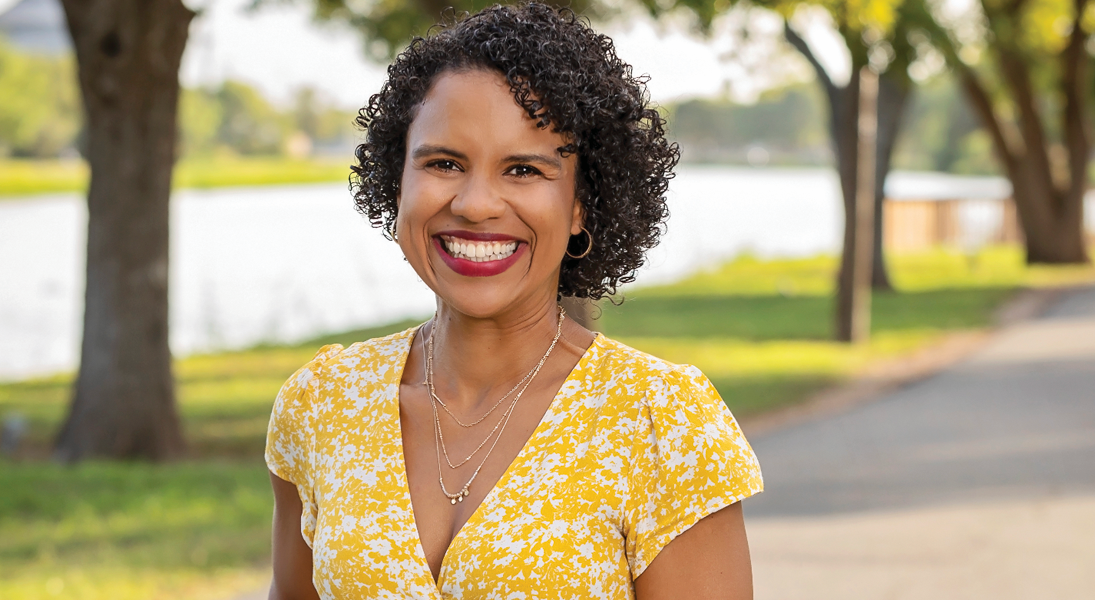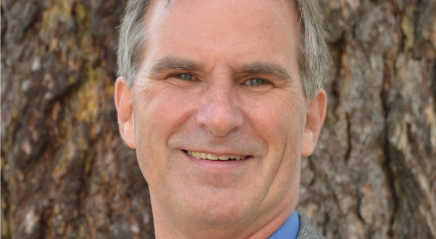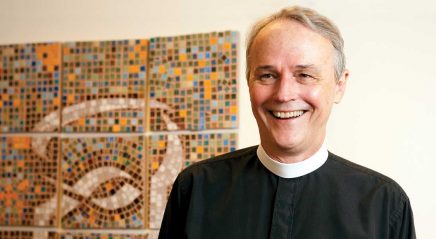Grace Lutheran Church, Harlingen, Texas
Director of programs and lawyer for ProBAR, an immigration project of the American Bar Association; member of the Southwestern Texas Synod Council’s executive committee; member of the MHP Salud (community health worker programs) board of directors; American Bar Association Top 40 Young Lawyers Honoree 2021
I grew up strongly rooted in my faith, attending Principe de Paz (Prince of Peace), an ELCA congregation in Caguas, Puerto Rico. When you grow up in poverty, building connections is important. Church was never one hour and then you’re gone. It was always a five-hour thing that happened every Sunday.
I moved to Texas not knowing anybody. Before I moved here for a job, I was working in a bakery making coffee and serving oatmeal so I could save money and study for the bar exam. The first Sunday after my arrival, I opened the church’s door when the pastor said we had a new person coming. I feel accompanied by grace. They give me strength and remind me I’m not alone.
I work in the immigration field. I oversee the biggest detained immigration project—on an annual basis, we serve 22,000 unaccompanied children. Our goal is to ensure due process and access to justice, to ensure that everyone has a fair chance to discuss their case. As a person of faith, I firmly believe in welcoming the stranger.
Those who do not welcome the stranger, I’ve found, are afraid of losing what they have. I think there’s enough for everybody. I believe many of us can be good stewards of what the Lord has made possible.
The first client I got out of detention was a 16-year-old boy from Honduras. I asked him, “Let’s talk about next steps. Do you still have my business card?” He looked at me and he said, “Yes, I still have it. I put it in my Bible over Psalm 91.” Then he started reciting it. I wanted to cry, but I didn’t want to do it in front of my client. When I got in my car I was bawling. I took a humongous leap of faith trying to improve my life, practicing with my law degree and helping others. I felt God at that moment.
Three years ago, a hurricane devastated my community in Puerto Rico. My parents were without power for eight months. Gethsemane Lutheran Church in San Antonio collected supplies to send to Puerto Rico, but they needed money to pay for shipment. After I texted someone on our church council, Grace ended up raising $1,500 to cover the shipment so supplies could go there. That’s the biggest sign of love and support they’ve ever shown. It was amazing.
The first client I got out of detention was a 16-year-old boy from Honduras. I asked him, “Do you still have my business card?” He said, “Yes, I put it in my Bible over Psalm 91.”
I love cooking. Growing up in Puerto Rico, I learned that after hurricanes, storms and anything that was quite stressful, sharing a meal was important. I’ve used that strategy for many conversations as an adult. I’m gonna cook the flan, cut a piece and put it in front of everybody. There’s so much beauty that happens at the table because you see the person that’s next to you as an equal. You lower your walls and defenses.
Every time I pray, I say to God: May other people see you in my face. I say that because I pray for strength so I can be a good ambassador of faith and what a life of faith can be. I pray for peace also.
I’m a Lutheran because I am a woman of action and I’ve always seen the ELCA as a church that’s extremely active rather than passive. There’s so many programs and projects we support that bring me pride. Our church is all those things: possibility, strength, motion, action, resilience. We believe in a God that was resurrected.
I’ve been blessed with wonderful parents who are very strong in their faith. I remember us praying every Sunday for our meal.
What I like most about my job is the opportunity to connect with people and offer a helping hand, be that through a client we serve or developing people through the organization. That brings me the most joy. My work is known for integrating mental health services into the whole practice. I’m glad I’m in a position where I can practice law with humanity.
I’ve served two years on synod council. I’ve learned how diverse our synod is in terms of worship style and demographics. I’ve seen very exciting and positive shifts in our synod after the social protests that happened last year and the whole call for the ELCA to welcome the stranger.
There’s a phrase I say, “When I have questions, nature holds all clues.” I find myself going a lot to nature when I’m feeling hopeless or when I’m feeling sad. Seeing how nature is able to adapt to changes gives me hope. I also work out regularly and teach yoga to promote healthy communities and build resiliency and strength.
Immigration is something we see in Scripture over and over. The people I serve are seeking refuge here to remain alive. They aren’t counting the days to come here. They decide to come because of the horrible conditions—gangs, rape, political persecution, torture and genocide. They look up to us because we are the standard of what’s supposed to be a free nation.









